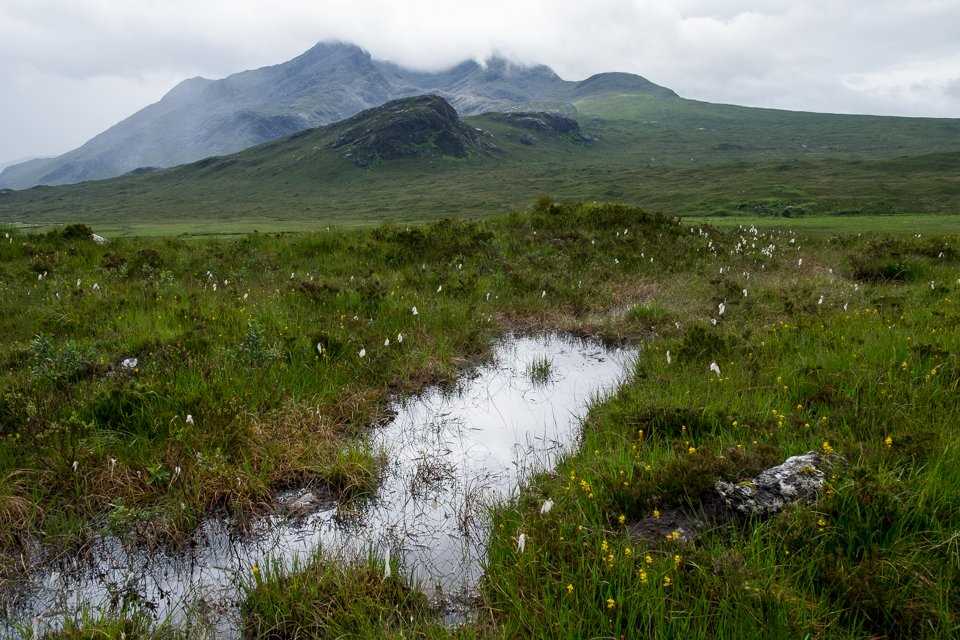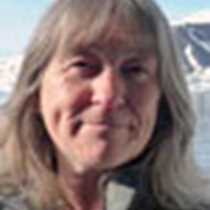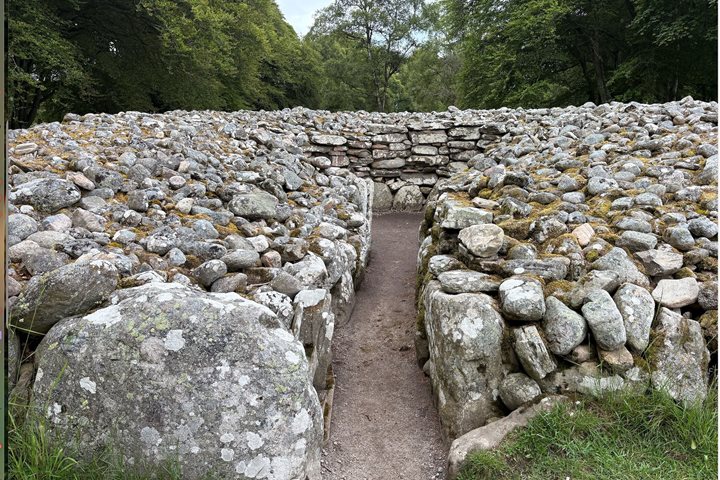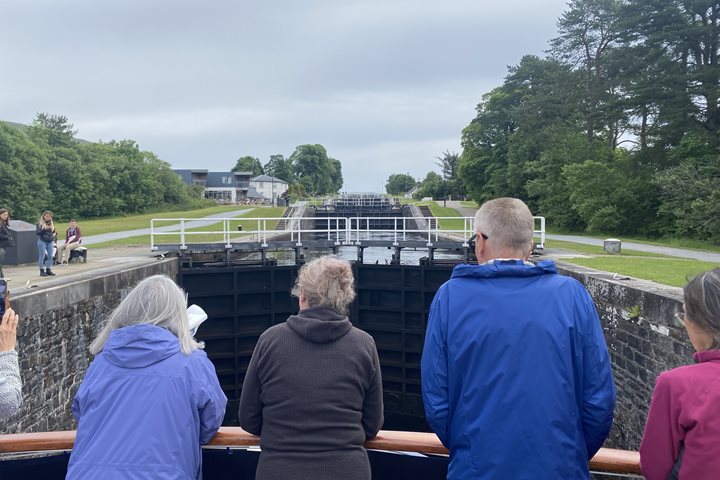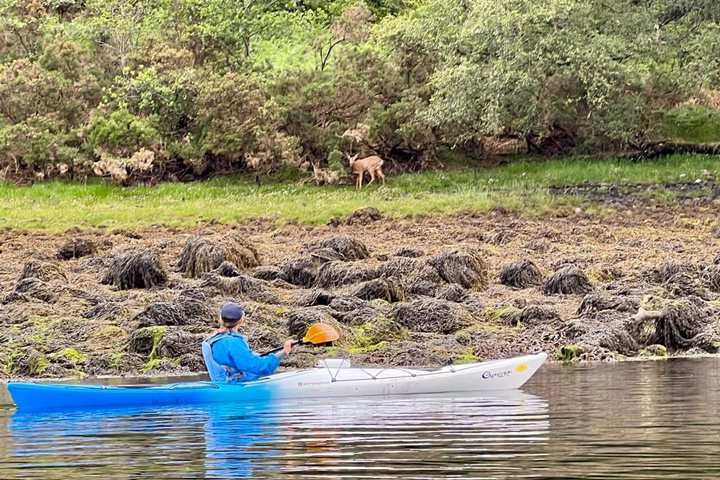Our first full day on our new home, Lord of the Glens, and last night’s lovely traditional music from Ronan and Frances was still resounding in our memories. It was a day of typically Scottish sunshine and misty showers, and soon we were setting off for our morning explorations.
Some of us chose to steep ourselves in history and local life, first of all visiting the delightful village of Plockton, established in 1794 on the shores of Loch Carron, with its rows of cottages and miniature front gardens looking out over a magnificent coastal view where otters and harbour seals are known to reside. Much of this area is managed by the National Trust for Scotland, maintaining crofting communities, extensive moorlands, and native woodlands. Then it was on to the famous castle of Eilean Donan, standing strategically on its tidal island at the confluence of Lochs Alsh, Loch and Duich. A stronghold has stood here for at least 2,000 years, but the present walls date only from the early 1200s. Held successively by the Mathiesons, the MacKenzies, and the MacRaes, it was destroyed in 1719 after one of the Jacobite rebellions, only to be restored in the 20th century by a descendant of the MacRaes.
Others of us chose to experience a hike in the Cuillin Mountains of Skye, crossing over the Skye bridge from Kyle of Lochalsh and continuing up to Sligachan for the start of a beautiful trail through dramatic, open scenery. Even more dramatic, however, was the rain that gave us a memorable introduction to Scottish weather.
During lunch our ship sailed south-westwards down the Sound of Sleat to Armadale, on the tip of Skye’s Sleat peninsula. Here we strolled to the Clan Donald Centre in the lush grounds of Armadale Castle. The MacDonalds had claimed this part of the Island in the 15th century, and the romantic ruins of their 19th-century mansion made a spectacular centrepiece to the gardens. A walk amongst its paths and terraces took us to the Museum of the Lords of the Isles, where the story of the Gaels was told from their first emergence more than 1,500 years ago, to the Clearances and diaspora of Gaelic-speaking peoples around the world in more recent times.
Lord of the Glens then sailed back across the Sound to Loch Nevis and the tiny settlement of Inverie, one of the most remote parts of the Scottish mainland as it is accessible only from the sea, or a very long walk over the hills. As the sun set behind the mountains shimmering in the darkening waters of the loch, the twinkling lights of the Old Forge Inn, Britain’s most remote pub, beckoned invitingly…

